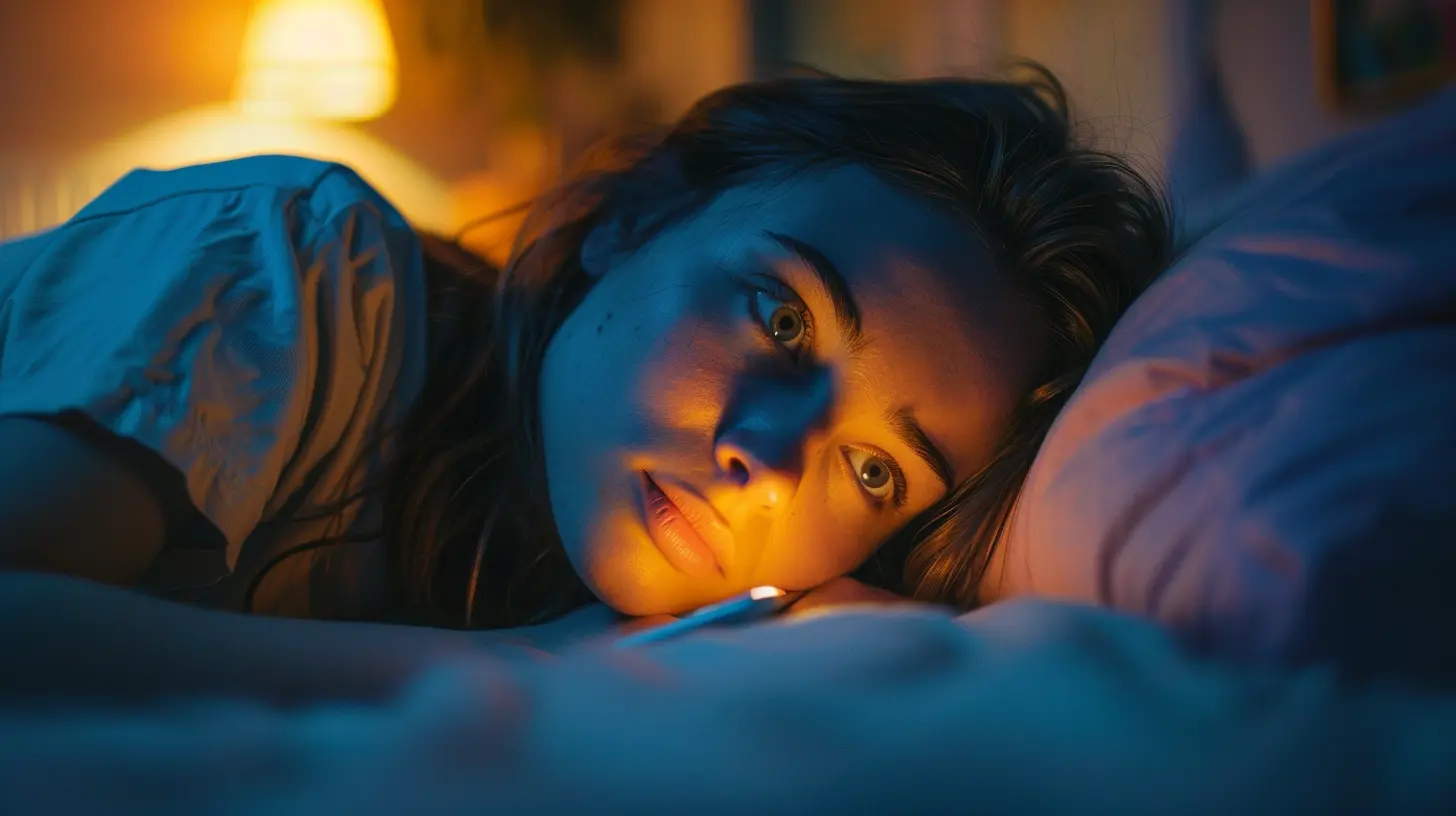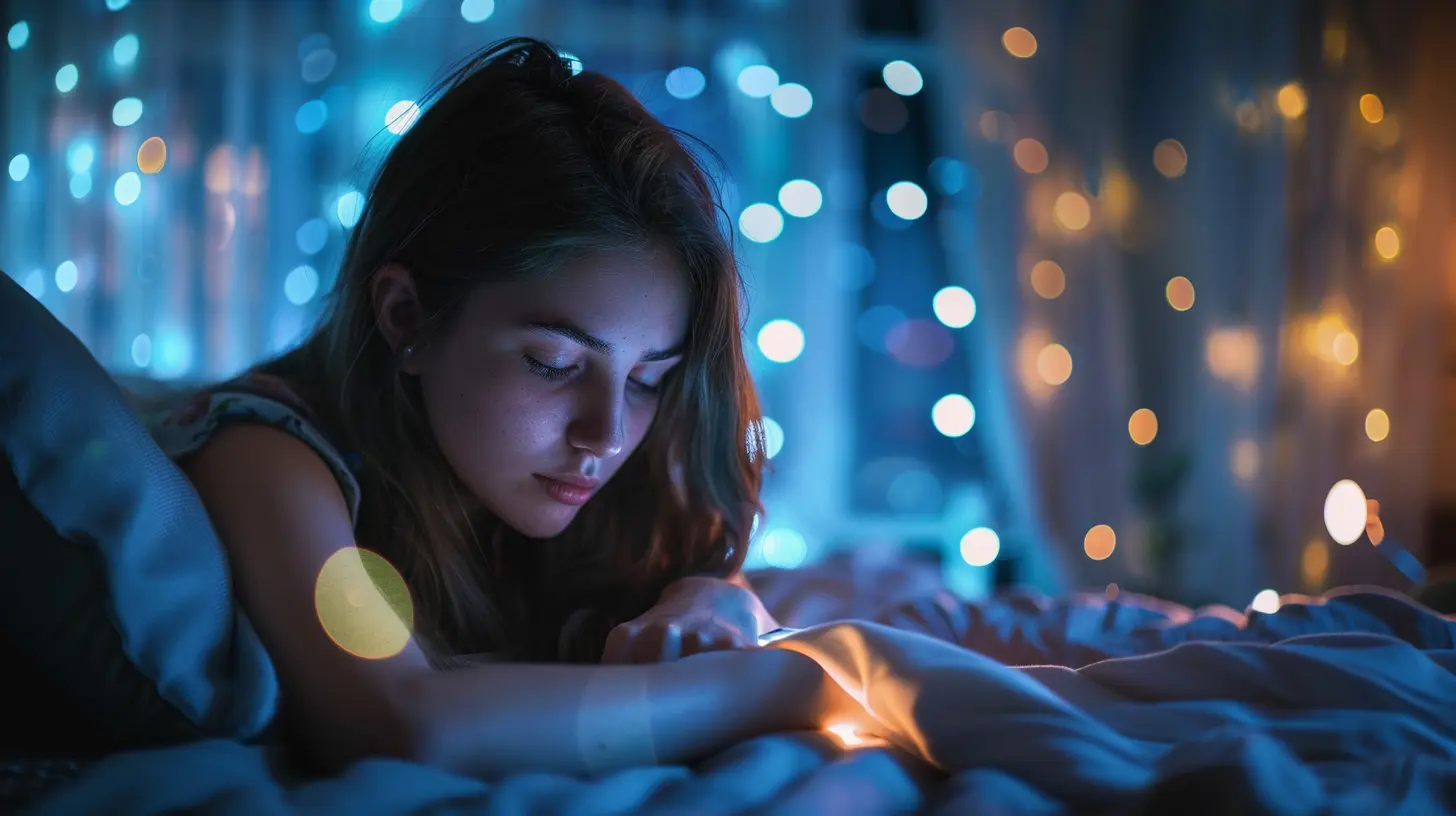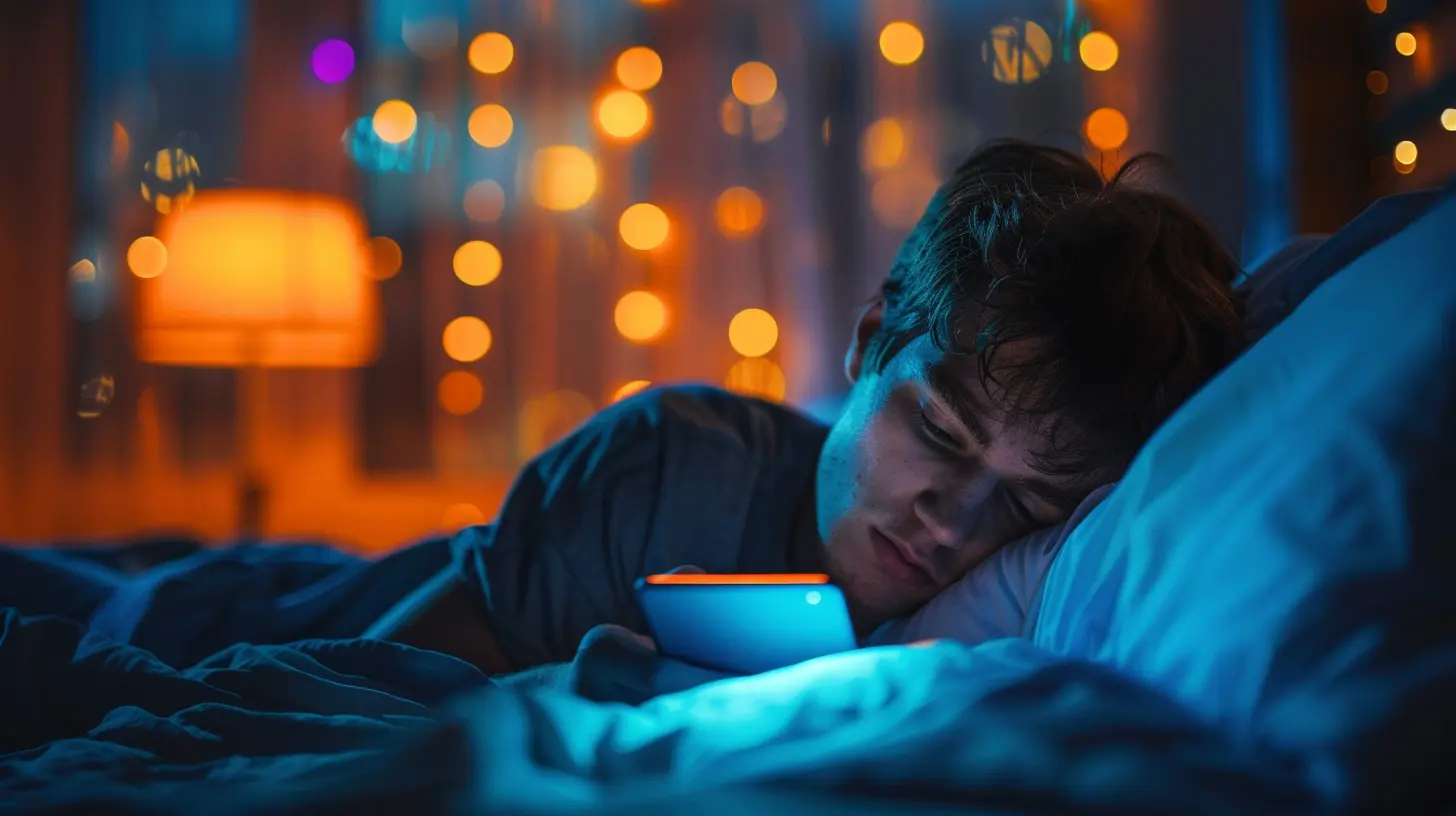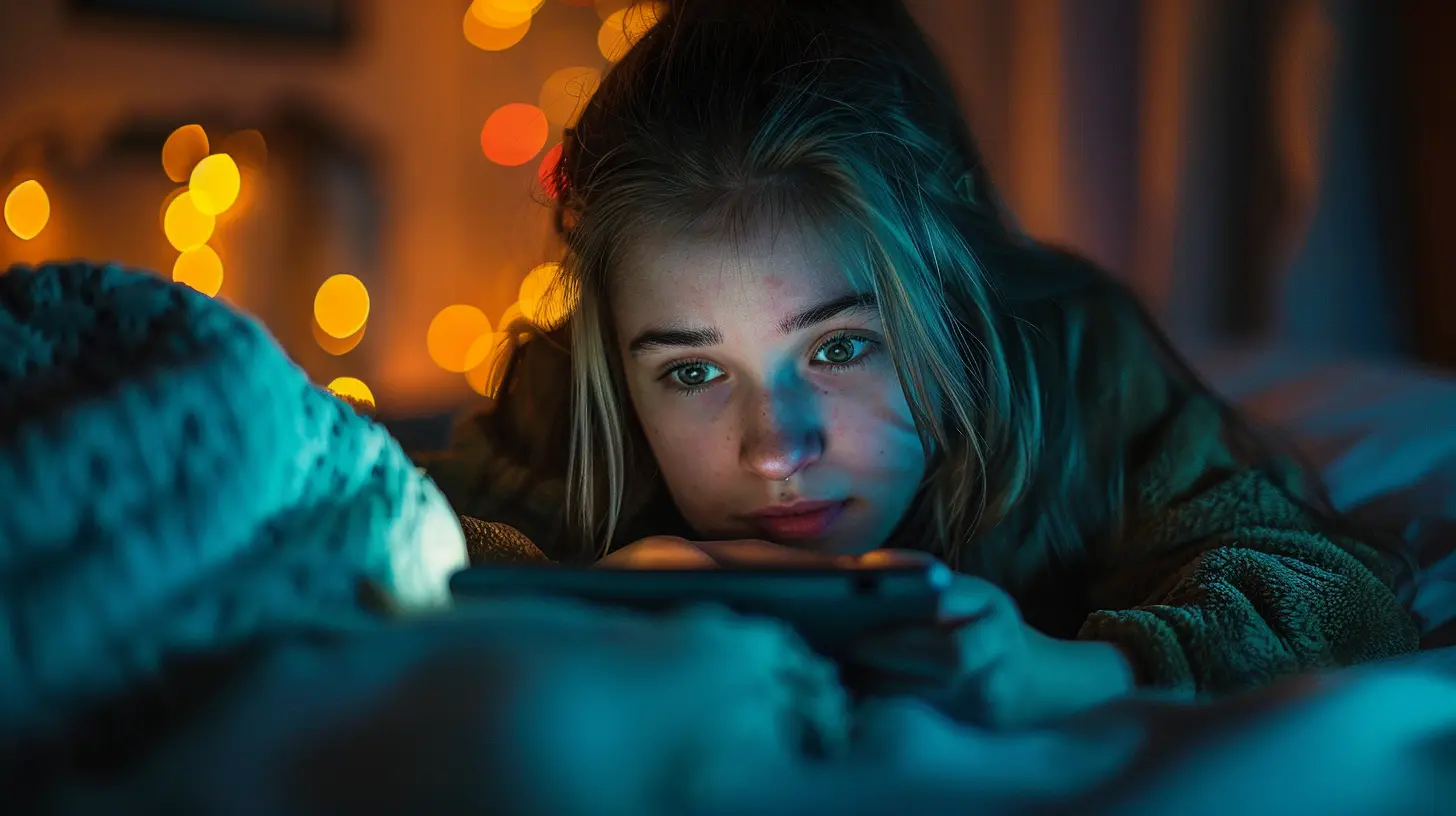How Blue Light from Devices Disrupts Your Sleep
17 July 2025
Introduction
Ever found yourself scrolling through social media late at night, only to struggle to fall asleep later? You're not alone. The culprit behind this struggle isn’t just an engaging feed—it’s the blue light emitted from your devices. Smartphones, tablets, laptops, and even TVs radiate blue light, which can seriously mess with your sleep cycle. But how exactly does this happen? Let’s dive deep into the science behind blue light and its sneaky role in sleep disruption. 
What Is Blue Light?
Blue light is a short-wavelength, high-energy type of visible light that comes from both natural and artificial sources. The primary natural source of blue light is sunlight, which plays a vital role in regulating our internal clock, also known as the circadian rhythm. However, artificial sources—like LED screens, smartphones, and fluorescent lighting—emit blue light, too.While blue light during the daytime can boost alertness and mood, excessive exposure at night can disrupt sleep patterns. The problem? Our brains associate blue light with daytime, making it harder to wind down when we actually need rest. 
The Science Behind Blue Light and Sleep Disruption
1. Blue Light Suppresses Melatonin Production
Melatonin is the hormone responsible for making you feel drowsy and signaling to your body that it's time to sleep. Normally, as daylight fades, melatonin levels rise, preparing you for a good night’s rest. But when you expose yourself to blue light from screens before bed, melatonin production is suppressed.Think of melatonin as your body's natural sleep switch. Blue light essentially keeps that switch turned off, tricking your body into thinking it’s daytime when it’s actually bedtime. This is why you might lie in bed, staring at the ceiling, wondering why sleep just won’t come.
2. Disrupts Circadian Rhythm
Your circadian rhythm is your internal 24-hour clock that regulates your sleep-wake cycle. Natural light exposure during the day keeps this clock in sync, helping you stay awake when you should and sleepy when it’s time to rest. However, nighttime exposure to blue light delays this cycle, pushing your sleep schedule further into the night.Ever noticed how staying up late watching Netflix makes you feel groggy the next morning? That’s your circadian rhythm falling out of sync. Over time, this can lead to chronic sleep deprivation, which comes with a host of health issues.
3. Reduces Sleep Quality
Even if you manage to fall asleep after using your devices, blue light exposure can reduce the overall quality of sleep. Studies show that people exposed to blue light before bed experience lighter sleep and wake up more frequently during the night.This means that even if you’re getting enough hours of sleep, the quality of that sleep is compromised. You might wake up feeling unrefreshed, sluggish, and not quite ready to tackle the day—no matter how much coffee you down. 
The Consequences of Poor Sleep Due to Blue Light
When your sleep is consistently disrupted by blue light exposure, your health takes a hit. Here’s how:1. Increased Risk of Insomnia
If you’re struggling to fall asleep night after night, insomnia might be creeping in. Chronic insomnia isn't just about difficulty sleeping—it can affect your mood, energy levels, and even your mental health.2. Higher Stress and Anxiety Levels
Poor sleep messes with your brain chemistry. Lack of sleep can make you more irritable, anxious, and emotionally reactive. Plus, stress hormones like cortisol spike when you don’t get good rest, worsening feelings of anxiety.3. Weakened Immune System
Your body does a lot of repair work while you sleep. If your sleep is constantly cut short, your immune system weakens, making you more susceptible to colds, flu, and other illnesses.4. Increased Risk of Chronic Diseases
Long-term sleep deprivation has been linked to serious health conditions like obesity, heart disease, diabetes, and even Alzheimer's. Sleep is not just about feeling rested—it plays a crucial role in your overall well-being.
How to Minimize Blue Light Exposure Before Bed
Now that we know how blue light messes with your sleep, let’s talk about solutions. You don’t have to ditch your devices entirely, but making a few adjustments can go a long way.1. Use Blue Light Filters
Most smartphones, tablets, and computers have a built-in "night mode" or blue light filter. Enabling this feature reduces blue light emissions, making the screen appear warmer and less disruptive to your sleep.2. Wear Blue Light Blocking Glasses
Blue light blocking glasses have special lenses that filter out blue wavelengths. If you're someone who spends a lot of time on screens in the evening, investing in a good pair of these glasses can help protect your sleep cycle.3. Set a Screen Curfew
One of the simplest and most effective ways to protect your sleep is to set a digital curfew. Aim to put away screens at least one hour before bed. Instead of scrolling through your phone, try reading a book, meditating, or doing some light stretches.4. Dim the Lights in the Evening
Bright overhead lighting can mimic the effects of blue light exposure. Opt for dim, warm-colored lights in the evening to signal to your body that it’s time to wind down.5. Use Red or Amber Light for Nighttime Use
Unlike blue light, red and amber light have minimal impact on melatonin production. If you need to use a light at night, opt for a warm-colored bulb instead of a bright white or blue-toned one.6. Prioritize Natural Light Exposure in the Morning
Getting plenty of natural sunlight in the morning helps regulate your circadian rhythm. Try to step outside for at least 10-15 minutes after waking up—this simple habit can help counteract the effects of nighttime blue light exposure.Final Thoughts
Blue light from devices might be an unavoidable part of modern life, but that doesn’t mean it has to steal your sleep. By making small adjustments—like using blue light filters, setting a screen curfew, and prioritizing natural light exposure—you can protect your sleep and wake up feeling refreshed.So, the next time you find yourself mindlessly scrolling at midnight, ask yourself: is this really worth sacrificing my sleep for? Your well-being depends on it.
all images in this post were generated using AI tools
Category:
Sleep HealthAuthor:

Laura Hudson
Discussion
rate this article
1 comments
Zoey Pacheco
This article highlights a critical issue. The impact of blue light on sleep is often underestimated. It's essential to limit screen time before bed to improve sleep quality and overall health. Great insights!
August 1, 2025 at 3:01 PM

Laura Hudson
Thank you for your thoughtful comment! I completely agree—limiting screen time before bed is key to enhancing sleep quality.


